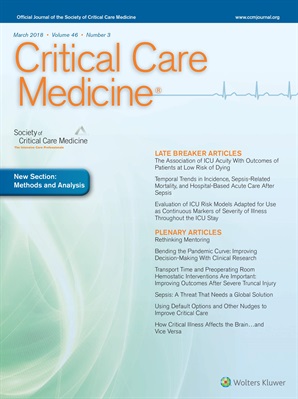Increasing SOFA Score Granularity With Deep Learning
We used a recurrent neural network, a deep learning model tailored for working with temporal data, to predict in-hospital mortality of 9,878 ICU encounters. Inputs consisted of the raw sequential time series for all variables outlined in the traditional SOFA score as well as several related variable augmentations: expanding Glasgow Coma Scale into individual components, adding phenylephrine and vasopressin to the cardiovascular component, adding SpO2 to the respiratory component, using all traditional and augmented variables, and examining traditional variables for ICU encounters lasting fewer than 24 hours. We chronologically split ICU encounters into an 80% development set, a 10% validation set, and a 10% testing set using thresholds based on ICU admission date.


Leave a Reply
You must be logged in to post a comment.